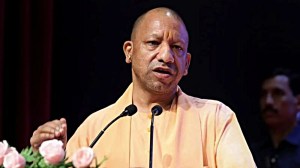An India of their dreams
Some months after the World Trade Center attack and the Gujarat massacre, a Muslim friend told me that he was concerned that many of his Mus...

Some months after the World Trade Center attack and the Gujarat massacre, a Muslim friend told me that he was concerned that many of his Muslim friends had sunk into a state of resentment and despair. He said they went on endlessly about how the whole world had turned against Islam, how Muslims were being blamed for every crime under the sun, and how no one had come to their defence even after the horrors of Gujarat. What worried him, he said, was that these people thought of no positive response: they only sat still and fumed and lamented. He saw in this a psychological state which would lead inevitably to disaster.
He feared, in particular, a violent reaction. On the one hand, this fear was based on the fact that a man pushed to the wall has no option other than to beat his way to freedom with his fists. But, at the same time, a violent reaction would only play into the hands of the Sangh Parivar, who would claim that they had been right all along and would then go about engineering a massacre infinitely larger than the one they accomplished in Gujarat. It would work like a self-fulfilling prophecy.
I asked what was the alternative. His answer was at once starkly simple and stunningly profound. In no rational form of social organisation, he said, could rights be divorced from duties. None could hope to get something for nothing. You had to work for what you wanted.
If this argument were to be acted upon, India’s Muslims would no longer crouch in a dark well of hopelessness, they would no longer see themselves only as victims. Instead, they would see India as their country, to which they owed their all — and they would work to make the India of their dreams, the India of every Indian’s dreams. All Indians, working shoulder to shoulder.
Like the rest of us, Muslims in India must fight for their rights— but for their rights as citizens of a democratic nation, not just for their religious rights. A struggle which uses religion as its justification will only antagonise other religious communities, especially the majority, which will see it as a challenge. This will also be a distortion of the only struggle which is valid today — the struggle for every citizen’s rights, upon which alone a nation can stand.
If India’s Muslims claim only that which is guaranteed to every citizen by our Constitution, the Vedic Taliban — whose offensive is based on religious bigotry and is anti-democratic in a fundamental way — will be left with no leg to stand on. Their arguments, relying as they do on a travesty of religion, will count for nothing against a stand which has nothing to do with religion. They cannot then shriek about a mythical “appeasement” of those who contribute far more to the country than they themselves do or ever have done.
Photos


- 01
- 02
- 03
- 04
- 05





























